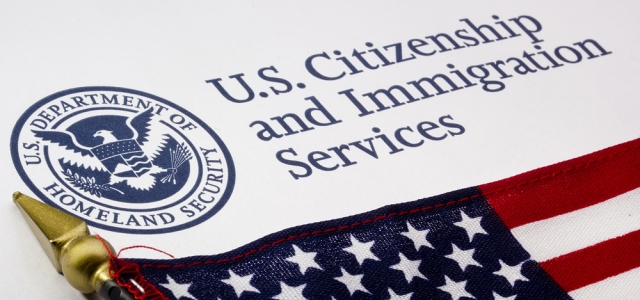This week, U.S. Citizenship and Immigration Services (USCIS) took another crucial step toward administrative reform of our immigration laws. The agency issued for public comment long-awaited policy guidance on its adjudication of L-1B “specialized knowledge” visa petitions. The L-1 category allows a U.S. multinational company to transfer talented employees, who have worked for a related entity abroad, to work in the United States temporarily either as managers or executives (L-1A) or because of their “specialized knowledge” (L-1B). This category enables companies to be more competitive in the global marketplace because they can place their valuable employees in the U.S. when needed to accomplish their business objectives.
For years, employers have faced uncertainties about the availability of the L-1B classification. Over the past decade, denial rates increased substantially, despite the fact that there have been no new regulations changing the agency’s standards for approval. The National Foundation for American Policy reported that the “denial rate for L-1B petitions increased to an historic high of 35 percent in FY 2014.”This represents a “more than five-fold increase in the rate of denials”—from only six percent in FY 2006. This trend is troubling, particularly given that in 1990, Congress amended the law to broaden the L-1 category.
Last November, the Secretary of Homeland Security recognized that USCIS’s “inconsistent interpretation” has “created uncertainty” for companies, and, as part of the package of executive actions, he directed USCIS to issue a policy memorandum that “will bring greater coherence and integrity to the L-1B program, improve consistency in adjudications, and enhance companies’ confidence in the program.” The Secretary also acknowledged that the “specialized knowledge” visa category is “critically important to multinational companies.” In its memo this week, USCIS echoed these sentiments, noting that “Congress has determined that the ability to transfer company personnel with specialized knowledge is important to fostering the growth and competitiveness of U.S. businesses.” Further, companies should be able to transfer specialized knowledge employees in order “to do business in an increasingly global marketplace.”
New guidance is a welcome step toward ensuring that the “specialized knowledge” category once again can be utilized by U.S. multinational employers to benefit to the U.S. economy. However, there are serious concerns that this latest memo does not entirely resolve the problems it was intended to fix and that in some key areas, it is more restrictive than prior guidance. USCIS’s issuance of the policy memo for comment provides interested stakeholders an important opportunity to reflect on the new guidance and offer input. USCIS will accept comments until May 8, and currently intends to apply the policy memorandum as of August 31, 2015.
FILED UNDER: featured, L-1B, specialized knowledge immigration, USCIS, Visas


